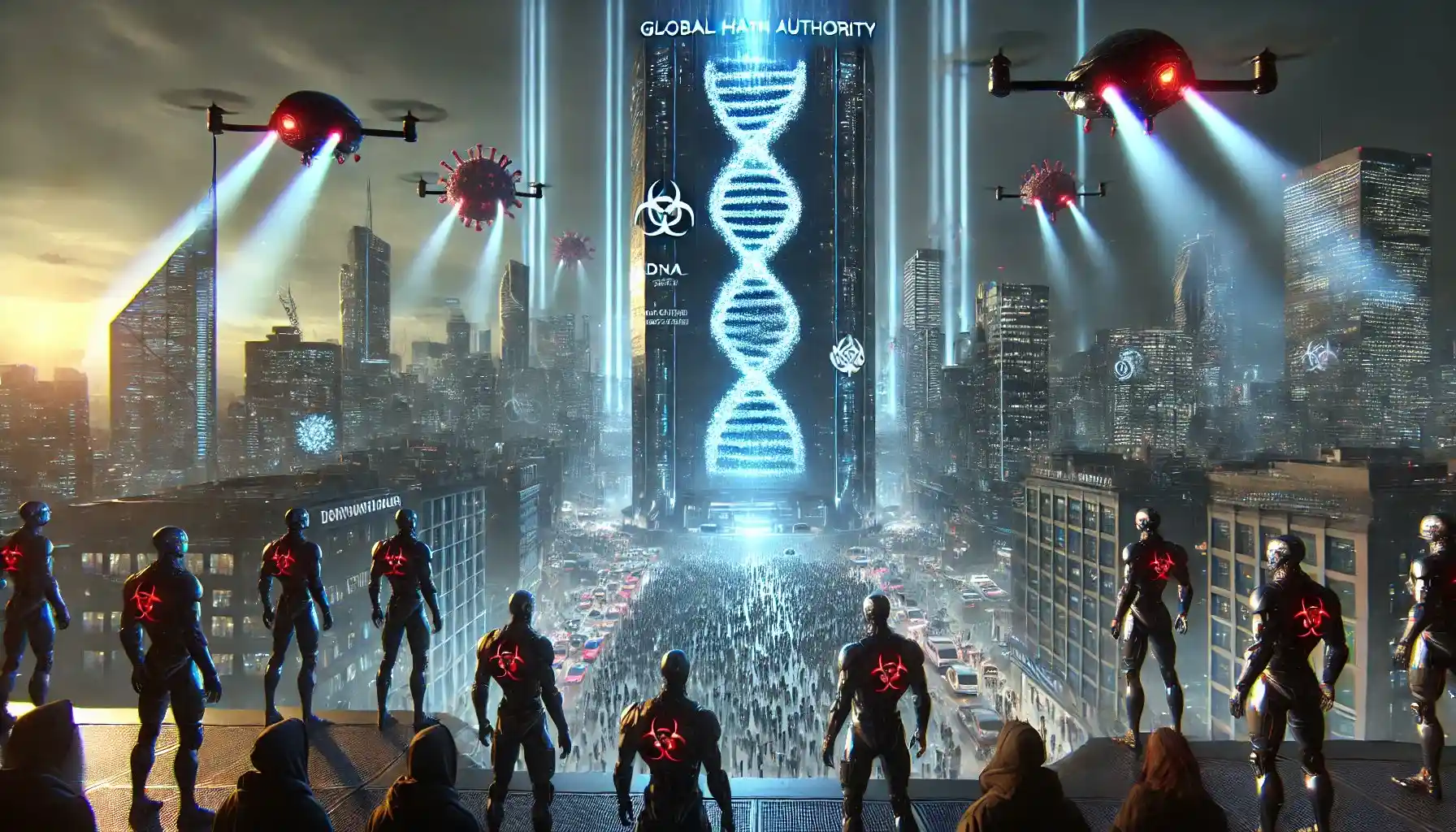1. Introduction
Purpose and Scope
-
Risk Awareness: Alert policymakers, health professionals, and the public to how global health governance might be weaponized or misused.
-
Preventive Measures: Encourage policy reforms, legal safeguards, and ethical guidelines that protect national sovereignty and personal freedoms.
-
Academic and Policy Use: Provide a reference for researchers, legislators, and watchdog organizations examining the intersection of global health mandates and civil liberties.
Methodology
-
Dystopian Scenario Approach: We use a “stress-test” format, imagining worst-case extremes to expose cracks in the governance architecture.
-
Multi-Level Analysis: Each scenario includes a concise overview of how the abuse might occur, why it is plausible, and a brief “Safeguard” suggestion.
-
Accountability Focus: We underscore the need for democratic oversight, enforceable checks, and community engagement to ensure that global health bodies remain transparent and aligned with human rights.

2. Accountability Vulnerabilities
-
Unelected Leadership and Governance: Issue:WHO’s leadership (Director-General, Executive Board) and core decision-making processes lack direct democratic elections or professional elections. Risk:Powerful political blocs or private interests could influence appointments, steering policy decisions for agendas unrelated to equitable global health. Potential Remedy: Increase transparency in leadership appointments, mandate conflict-of-interest disclosures, improve representation for low- and middle-income countries, and institute professional peer community elections.
-
Centralized Decision-Making: Issue: During crises, the WHO often serves as the central authority for declaring pandemics and coordinating emergency responses. Risk: Excessive concentration of power can result in top-down mandates that override local contexts or democratic processes, leading to uniform but potentially oppressive policies. Potential Remedy: Institute multi-agency reviews, create peer committees, and establish rotating oversight bodies to validate health emergency declarations.
-
Limited Legal Recourse: Issue: International bodies often enjoy legal immunities, making it difficult for citizens or smaller nations to challenge potentially harmful policies. Risk: Victims of policy overreach may lack direct legal mechanisms to seek accountability or compensation, especially if larger states back the WHO’s stance. Potential Remedy: Develop international or regional tribunals equipped to hear complaints about overreach or abuses by global health entities.
-
Transparency GapsIssue: Not all WHO deliberations, budgets, or partnership agreements are made publicly available in real time. Risk: Opaque decision-making processes invite corruption, mismanagement, or selective data manipulation. Potential Remedy: Enforce open-data policies, publish meeting minutes, and create whistleblower protections.
-
Influence of Big Donors and Industry Issue: A large portion of WHO’s budget comes from voluntary contributions by member states, philanthropic organizations, and private-sector funders. Risk: Conditional or earmarked funds might bias research priorities, guidelines, or the distribution of health resources. Potential Remedy: Require disclosure of funding sources, incorporate independent ethics boards to evaluate potential conflicts of interest, and diversify the funding portfolio.
-
Weak Enforcement Against Malfeasance Issue: If WHO leadership itself breaches ethical or legal standards, there is no straightforward enforcement mechanism at the global level. Risk: Senior officials may evade repercussions for harmful decisions if they align with powerful state actors or corporate sponsors. Potential Remedy: Formally empower an external, internationally recognized accountability body (e.g., an ombudsman or cross-institution tribunal) to oversee WHO operations.
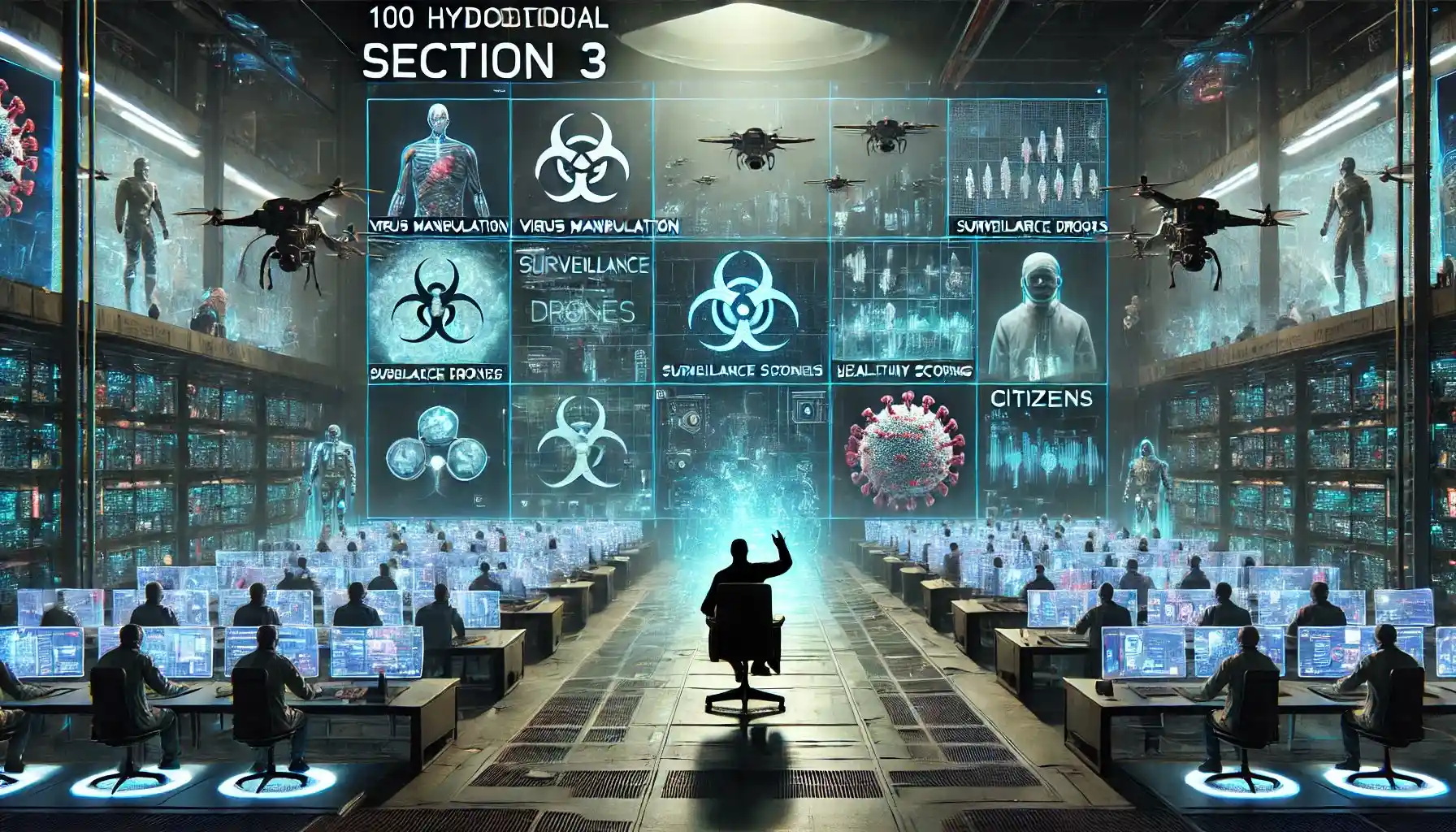
3. One Hundred Hypothetical Dystopian Scenarios
3.1. Scenarios 1–10
1. Manipulating Virus Origins and Data
2. Enforcing Discriminatory Quarantines
3. Exploiting Advanced Surveillance Technologies
4. Manipulating Vaccine Distribution
5. Forced Medical Interventions
6. Controlling Essential Resources
7. Abusing Emergency Declarations
8. Weaponizing Public Health Communications
9. Imposing Harsh Sanctions
10. Exploiting Industry 4.0 (AI, IoT, Biotech)
3.2. Scenarios 11 – 20
11. Manipulating Global Health Funding
12. Suppressing Counter-Evidence
13. Exploiting Public Health Surveillance for Political Gains
14. Promoting Ineffective or Harmful Treatments
15. Concealing Bioweapon Research
16. Leveraging Vaccine Passports for Control
17. Targeted Resource Withholding
18. Arbitrary International Travel Policies
19. Restricting Internet Access
20. Exploiting Supply Chain Dependencies
3.3. Scenarios 21 – 30
21. Institutionalizing Discrimination
22. Inflating or Extending Pandemics
23. Creating a Global Surveillance State
24. Mandating Digital IDs for Health Services
25. Weaponizing Artificial Intelligence
26. Using Quarantine Camps as Detention Centers
27. Enforcing Forced Relocations
28. Erasing National Health Standards
29. Imposing Financial Penalties
30. Criminalizing “Misinformation”
3.4. Scenarios 31 – 40
31. Fabricating Health Crises
32. Exploiting Refugee Populations
33. Manipulating Trade Policies
34. Using Economic Leverage to Gain Political Control
35. Mandating Global Health Taxes
36. Abusing International Health Certificates
37. Targeting Political Opponents via False Diagnoses
38. Manipulating Research Priorities
39. Forcing Compliance Through Resource Rationing
40. Manipulating or Censoring Media Narratives
3.5. Scenarios 41 – 50
41. Exploiting Child or Elderly Populations
42. Enforcing Biometric Tracking Chips
43. Fueling Regional Hostility
44. Undermining National Governments
45. Engineering Inequities in Emergency Funding
46. Restricting Cultural or Religious Practices
47. Creating Dependence on Proprietary Technologies
48. Deploying “Health Armies”
49. Enforcing Sterilization Programs
50. Expanding Pandemic Definitions Arbitrarily
3.6. Scenarios 51 – 60
51. Authorizing Unregulated Human Challenge Trials
52. Abusing “One Health” Policies
53. Prolonging Quarantine to Sway Elections
54. Institutional Bullying of Small Nations
55. Exploiting Health Influence to Demand Territorial Concessions
56. Pushing “Designer” Genetic Editing
57. Encouraging Self-Policing and Informant Culture
58. Controlling Information on Side Effects
59. Mandating Global Mental Health Screenings
60. Restricting Family or Community Gatherings
3.7. Scenarios 61 – 70
61. Imposing Curfews Indefinitely
62. Restricting Protest Movements
63. Fomenting Inter-Group Conflict for Political Gain
64. Normalizing Permanent Contact Tracing
65. De-Emphasizing Traditional Medicine
66. Using “Population Control” as a Health Strategy
67. Exploiting Volunteer or NGO Networks
68. Controlling Patent and Intellectual Property Laws
69. Blacklisting Non-Compliant Governments
70. Overriding Local Ethical Review Boards
3.8. Scenarios 71 – 80
71. Imposing Digital Central Bank Currencies Linked to Health Data
72. Encouraging Border Walls or “Health Corridors”
73. Legalizing Euthanasia “to Prevent Spread”
74. Abolishing Religious Exemptions
75. Weaponizing Data to Secure Political Patronage
76. Instituting “Surgical Strikes” on “Health Threats”
77. Normalizing Telemedicine as the Only Option
78. Encouraging Global “Disease Credit Scores”
79. Co-Opting Influencers and Celebrities
80. Targeting Rural or Indigenous Foods and Lifestyles
3.9. Scenarios 81 – 90
81. Establishing Mandatory Health Social Credit
82. Monopolizing Disease Simulation Models
83. Institutionalizing Permanent Mask Mandates
84. Restructuring Educational Curricula
85. Exploiting Chronic Disease “Pandemics”
86. Creating Layered Fees for “High-Risk” Lifestyles
87. Mandating Genetic Testing at Birth
88. Declaring Overpopulation as a “Health Crisis”
89. Centralizing All Personal Health Records
90. Enforcing Planetary-Level Lockdowns for Novel Threats
3.10. Scenarios 91 – 100
91. Running Secret “Health Trials” on Prison Populations
92. Politicizing Expert Panels
93. Using Health Aid to Alter Foreign Policy
94. Mandating Surrender of Biological Samples
95. Institutionalizing “Citizen Snitch” Rewards
96. Legitimizing Forced Psychiatric “Treatments”
97. Subverting National Constitutions
98. Creating “Infection-Free Zones” for Elites
99. Enacting Permanent “Low-Contact” Societal Norms
100. Monetizing “Health Data” Markets
4. Strengthening Accountability: Human Safeguards and Oversight
-
Independent Oversight Bodies: Create a permanent international ombudsman or watchdog entity with the power to investigate WHO actions, review complaints, and recommend sanctions for misconduct. Ensure membership diversity (geographically, politically, professionally) to minimize conflicts of interest.
-
Democratic Inclusion: Invite civil society organizations, healthcare workers’ unions, Indigenous representatives, and grassroots groups to participate in global health decision-making. Mandate public comment periods and stakeholder consultations before major policy shifts or emergency declarations.
-
Enhanced Transparency Protocols: Publish real-time financial transactions, funding sources, and supply chain allocations. Develop standardized, plain-language dashboards showing key data (infection rates, vaccine deliveries, budgets, etc.).
-
Strong Legal Recourse and Liability: Negotiate international treaties allowing individuals or states to bring claims against WHO leadership in cases of gross negligence or human rights violations. Clarify how national courts or regional human rights tribunals can address claims of WHO overreach.
-
Ethical Technology Governance: Require thorough ethics review boards and data privacy compliance checks for any technology deployed under WHO directives (e.g., AI-based surveillance, digital health passports). Incentivize open-source solutions to reduce vendor lock-in and hidden exploitation of health data.
-
Periodic Global Review Conferences: Conduct mandatory “accountability summits” every few years, evaluating WHO’s compliance with transparency, equity, and ethical standards. Publish official outcome reports with specific recommendations and deadlines for corrective action.
5. Conclusion
-
Centralization vs. Sovereignty: Over-concentration of power in an unelected global body can undermine national autonomy and cultural practices if checks and balances are weak.
-
Transparency is Paramount: Publishing decisions, data, budgets, and negotiating processes in accessible formats discourages corruption and builds public trust.
-
Legal Accountability: Clear mechanisms for legal redress — both for nations and individuals — must be in place to deter abuses.
-
Cultural and Ethical Considerations: Policies that disregard local traditions, ethical norms, and diverse healthcare practices risk igniting social unrest and resentment.
-
Preparedness vs. Overreach: While coordinated global health responses are crucial, they must not become vehicles for indefinite states of emergency or encroachments on personal freedoms.
6. Professional Accountability Gaps in WHO Governance
6.1. Overview of the Problem
Our earlier exploration outlined 100 dystopian scenarios that could emerge if a global health authority — like the WHO — were wielded by malicious or hijacked leadership. A reasonable question arises: How can such abuses occur if the WHO:
- Has 194 Member States participating in decision-making, and
- Often involves health experts (doctors, scientists, researchers) in its committees and leadership?
This addendum addresses why these procedural features still leave loopholes for unaccountable decision-making, creating potential for the dystopian outcomes we discussed.
6.2. Political vs. Professional Channels
- State-Appointed Delegates
- Each of the 194 Member States typically sends government-chosen representatives to the World Health Assembly and Executive Board.
- Political Appointees: These individuals can be ministers, ambassadors, or political staffers rather than professional medical experts, and in modern & economically challenging times can elect ideologically or religiously driven candidates.
- Result: Decisions are often guided by political priorities (national interests, party lines) rather than purely medical or ethical best practices.
- Expert Committees
- The WHO does have technical experts on committees (e.g., scientific advisory panels).
- Gap: There is no global licensing or direct professional accountability to citizens of each Member State for those on these committees. Many are nominated or hired centrally by the WHO or by national governments—not through a transparent “international medical college” process.
- Consequence: Even skilled professionals may be shielded from local accountability if they make controversial or harmful global decisions.
6.3. Professional Accountability in National Healthcare vs. WHO
At the national level (e.g., in Canada’s healthcare system):
- Medical professionals answer to licensing bodies (colleges, boards) and ethics committees within each jurisdiction.
- If a doctor or administrator harms patients or breaches standards, there are legal and professional consequences (license revocation, malpractice suits, etc.).
Internationally, in the WHO context:
- There is no single global medical licensing board for WHO officials.
- The WHO’s leadership is chosen via political processes (Member States vote; each state picks its delegates).
- Professional oversight of WHO staff is largely internal. If an official implements harmful policies, national courts may have limited or no direct jurisdiction. Accountability is diffuse, with few immediate professional sanctions.
6.4. Loopholes – Lack of Binding Professional Standards
While WHO staffers are often highly educated, there is no universal, legally binding code ensuring they abide by the same rigorous “duty to patient” that national doctors do. Many historic and modern frameworks exist to govern medical ethics at local or national levels, but none comprehensively apply to all WHO personnel in the same way. Here are just a few examples that illustrate how many codes and declarations have shaped medical ethics over time—yet remain unenforceable at a unified global level:
-
- Hippocratic Oath (5th century BCE)
- One of the earliest documented ethical frameworks for physicians, emphasizing non-maleficence (“do no harm”), confidentiality, and responsibility to the patient.
- The Oath of Maimonides (12th century)
- A Jewish medical prayer attributed to Moses Maimonides (though exact authorship is debated), focusing on humility, compassion, and dedication to healing.
- Charaka Samhita (Ancient India)
- Foundational text of Ayurveda, containing moral guidelines for healers, stressing compassion and the physician’s moral duty to society.
- Adab al-Tabib (“Conduct of the Physician”) (9th century, Ishaq ibn Ali al-Ruhawi)
- Influential Islamic Golden Age treatise detailing the ethical obligations of physicians, including honesty and spiritual considerations in care.
- AMA Code of Medical Ethics (American Medical Association, first adopted 1847)
- One of the earliest modern national codes, regularly updated, governing U.S. physicians on issues like patient autonomy and confidentiality.
- BMA Code of Ethics (British Medical Association, late 19th century onward)
- Guides doctors in the UK on professional standards; evolving around informed consent, patient welfare, and public health responsibilities.
- Nuremberg Code (1947)
- Created post-WWII in response to Nazi medical atrocities; emphasizes voluntary informed consent, the right to withdraw, and research beneficence.
- Declaration of Geneva (1948, World Medical Association)
- A modern restatement of the Hippocratic Oath, stressing a physician’s dedication to the health and dignity of patients above all.
- WMA International Code of Medical Ethics (1949, updated since)
- Outlines core duties: professional independence, prioritizing patient welfare, and maintaining high standards of medical practice.
- Belmont Report (1979, U.S.)
- Codified respect for persons, beneficence, and justice in human-subject research. Hugely influential internationally.
- Declaration of Helsinki (1964–present, WMA)
- Defines ethical principles for medical research involving human subjects; updated multiple times to address emerging issues.
- Council of Europe’s Oviedo Convention (Convention on Human Rights and Biomedicine, 1997)
- Europe’s only binding international treaty on bioethics, covering consent, genetic testing, and organ transplantation.
- CIOMS Guidelines (Council for International Organizations of Medical Sciences)
- In-depth guidance on conducting ethical biomedical research, focusing on informed consent, risk-benefit analysis, and the protection of vulnerable groups.
- UNESCO Universal Declaration on the Human Genome and Human Rights (1997)
- Addresses genetic research and the protection of human dignity, though not legally binding worldwide.
- UNESCO Universal Declaration on Bioethics and Human Rights (2005)
- Sets broad ethical principles for medicine and life sciences, referencing human rights but lacking enforceable power.
- Additional Protocols to the Oviedo Convention (Council of Europe, various dates)
- Cover specific topics like biomedical research, transplantation, and genetic testing with further ethical rules—again, regionally binding, not global.
- Tokyo Declaration (WMA, 1975)
- Addresses the ethical treatment of detainees and the physician’s duty to refuse participation in torture or forced treatments.
- Lisbon Declaration on the Rights of the Patient (WMA, 1981)
- Emphasizes patient autonomy, the right to consent, and the right to refuse treatment.
- Declaration of Taipei (WMA, revised 2016)
- Covers ethical considerations regarding health databases and biobanks, emphasizing privacy and informed consent.
- GMC (General Medical Council) Good Medical Practice (UK)
- Nationally binding code that requires doctors to prioritize patient care, maintain clinical knowledge, and uphold ethical standards.
- CMA Code of Ethics and Professionalism (Canadian Medical Association)
- Canada’s primary physician code, stressing compassion, competence, and accountability to patients and society.
- Pharmacist Oath / Codes (various countries)
- Distinct from physician oaths, these codes address safe medication practices, patient counseling, and preventing harm through pharmaceuticals.
- WMA Resolution on Physician Participation in Capital Punishment
- Prohibits doctor involvement in executions, reflecting a broader principle of “do no harm.”
- Sydney Declaration (WMA, 1968)
- Focuses on the determination of death and organ transplant ethics, reaffirming transparent standards in end-of-life situations.
- Dozens of Specialty-Specific Guidelines
- E.g., pediatrics, oncology, end-of-life, mental health, palliative care — each with its own robust ethical framework, but not universally enforceable at a global level.
- Hippocratic Oath (5th century BCE)
Altogether, dozens upon dozens of ethical rules, codes, and declarations exist — spanning thousands of years of philosophical, legal, and professional thought. Every national-level medical licensing body enforces some version of these standards, which makes malpractice or unethical practice subject to investigation, license suspension, or revocation. However, no such globally unified enforcement mechanism applies to WHO officials or committees. The WHO can reference these codes but cannot enforce them universally across all Member States or staff.
Consequence
- Shielded from Local Accountability: Even if WHO personnel breach widely accepted ethical norms, there’s no direct mechanism (like a global medical board) to strip them of the ability to practice or to sanction them legally.
- Policy vs. Professional Duty: Because the WHO operates at an intergovernmental (political) scale, “policy decisions” can override what, at a national level, might be deemed unethical.
This stark contrast — a world awash in rich ethical codes for national and local medical practice, yet no binding international version — amplifies the potential for dystopian misuse if a WHO directive or initiative runs counter to the well-being of certain populations. Ultimately, political decisions can usurp professional ethics when there’s no single global standard (or enforcement) ensuring that “do no harm” remains paramount.
6.5. Additional Accountability Gaps: Political Appointees, Limited Transparency, and No Redress Mechanisms
- Political Appointees Lacking Medical Credentials
- Even if some committees contain doctors, the ultimate votes may come from politicians or political envoys. Medical nuance can be overridden by diplomatic horse-trading or ideological agendas.
- Insufficient Transparency and Feedback Loops
- Citizens in each country rarely track how their government votes in WHO meetings. Public scrutiny is minimal, so poor decisions can slip through with minimal resistance.
- National parliaments are not required to hold robust debates on every WHO policy or appointment.
- No Direct Path for Redress
- A local doctor in Canada can be sued for malpractice in Canadian courts. By contrast, if WHO guidelines or decisions lead to harmful outcomes, who is sued or held liable? The WHO enjoys international immunities.
- Lack of Binding Professional Standards
- While WHO staffers are often highly educated, there is no universal code ensuring they abide by the same rigorous “duty to patient” that national doctors do. The chain of command is more bureaucratic and political.
6.6. Why Dystopian Outcomes Are Feasible
- Power Concentration: When global directives override local laws, any unethical or top-down misstep can produce wide-scale harm rapidly.
- Weak Global Checks: Unlike a national medical board that can revoke licenses, the WHO has no universally recognized “professional accountability” structure.
- Political Infiltration: If a malign actor influences enough Member States or key leadership positions, even expert committees could be pressured into compliance or sidelined.
Thus, despite having 194 Member States and some expert involvement, the framework is not inherently immune to power abuses. The combination of political decision-making, lack of direct accountability, and no global licensing authority leaves the door open for the dystopian scenarios we previously enumerated.
6.7. Conclusion
Yes, the WHO has diverse membership and includes credentialed professionals on many committees. However, the critical governance mechanisms — who ultimately votes, how staff are chosen, and the absence of a global professional accountability system — allow potential gaps that could be exploited by unethical leaders.
To summarize:
- Political Selection often supersedes purely professional vetting at the WHO level.
- No direct electorate, no global “medical court,” and national-level scrutiny can be limited.
- This mismatch between the appearance of expertise and the actual political process is exactly why dystopian outcomes remain conceivable.
An international “merit-based, transparent accountability system” could reduce these risks—but that would require significant reforms that Member States (including Canada) have yet to universally support. Hence, as our previous work suggests, the potential for misuse still stands.
7. References
-
Fidler, D. P. (2004). SARS, Governance and the Globalization of Disease. Explores how international legal frameworks responded to SARS and the role of global health bodies in times of crisis.
-
Gostin, L. O., & Katz, R. (2016). “The International Health Regulations: The governing framework for global health security.” The Milbank Quarterly, 94(2), 264–313. Discusses the International Health Regulations (IHR) and their effectiveness in balancing global cooperation with national sovereignty.
-
World Health Organization. (2020). A guide to WHO’s role in public health emergencies. Official guidance document illustrating WHO’s mandate, roles, and responsibilities during international health crises.
-
Yong, E. (2020). “How the pandemic will end.” The Atlantic. Journalism piece providing insight into pandemic responses and the interplay between global bodies and national governments.
-
Kickbusch, I., & Reddy, K. S. (2015). “Global health governance — The next political revolution.” Public Health, 129(7), 838–842. Highlights the complexities of global health governance structures and calls for more democratic oversight.
-
United Nations. (2021). Report of the Special Rapporteur on the right of everyone to the enjoyment of the highest attainable standard of physical and mental health. Addresses human rights dimensions in health governance, emphasizing the necessity of accountability and equity.
8. Final Note
-
The scenarios and accountability measures provided are not exhaustive. Each case can be further expanded with localized data, legislative references, and ethical frameworks suited to particular regions or regulatory environments.
-
By acknowledging the potential for misuse, this document ultimately aims to fortify the legitimate role of global health institutions through transparency, community engagement, and robust oversight. The report also demonstrates that the Only by proactively recognizing vulnerabilities can we ensure that international public health efforts remain aligned with the core values of human dignity, equity, and democratic accountability.
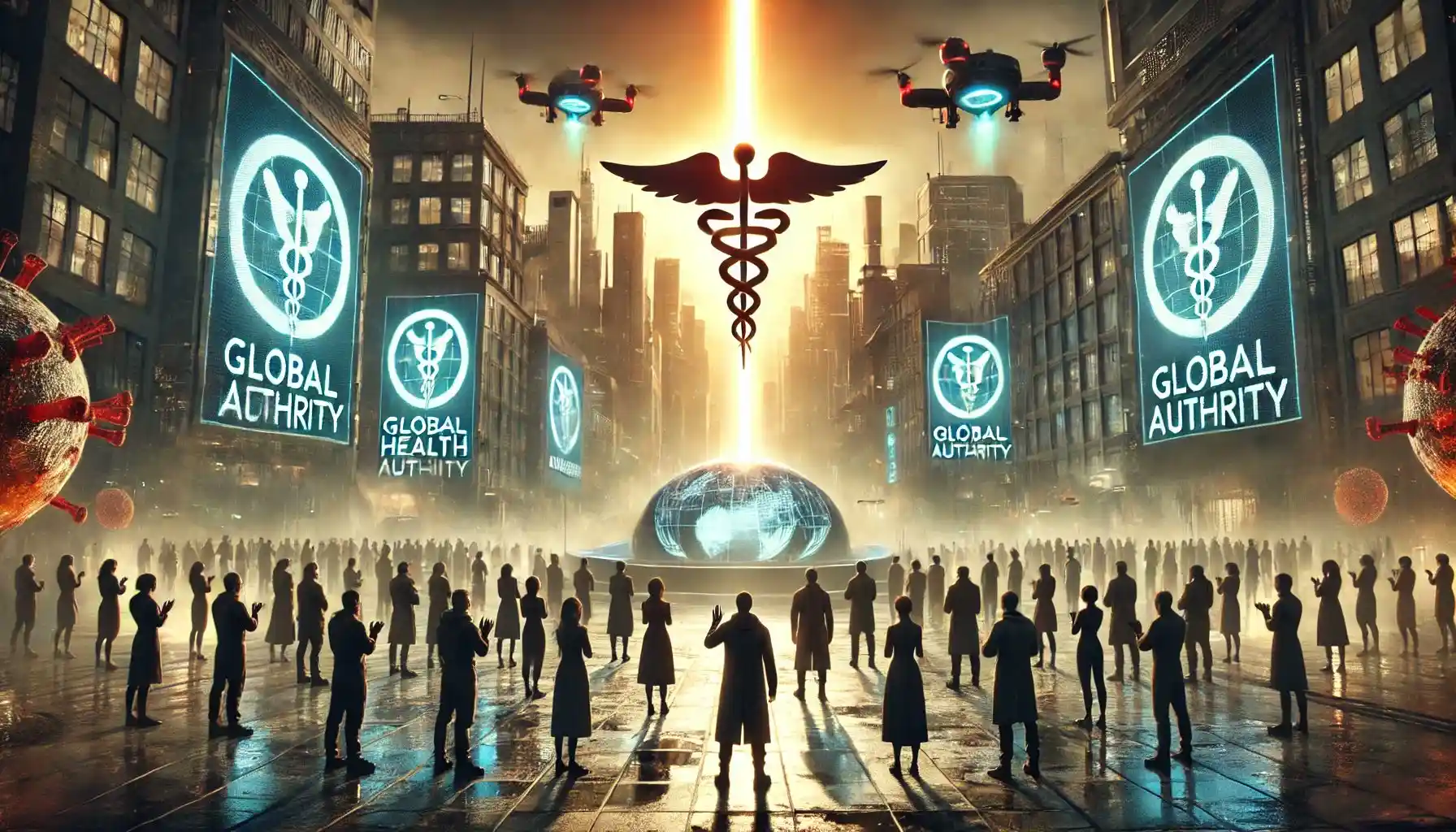

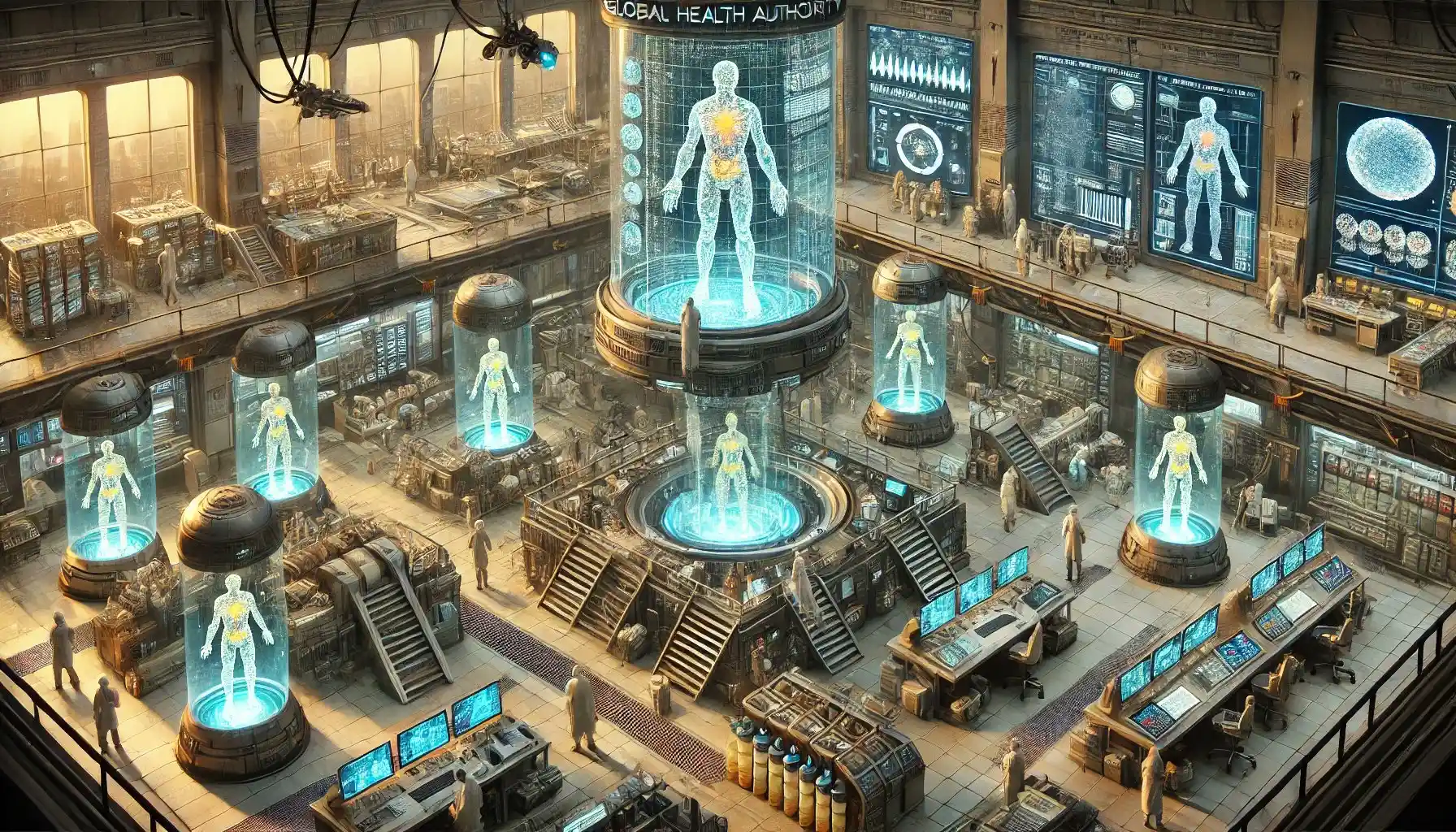




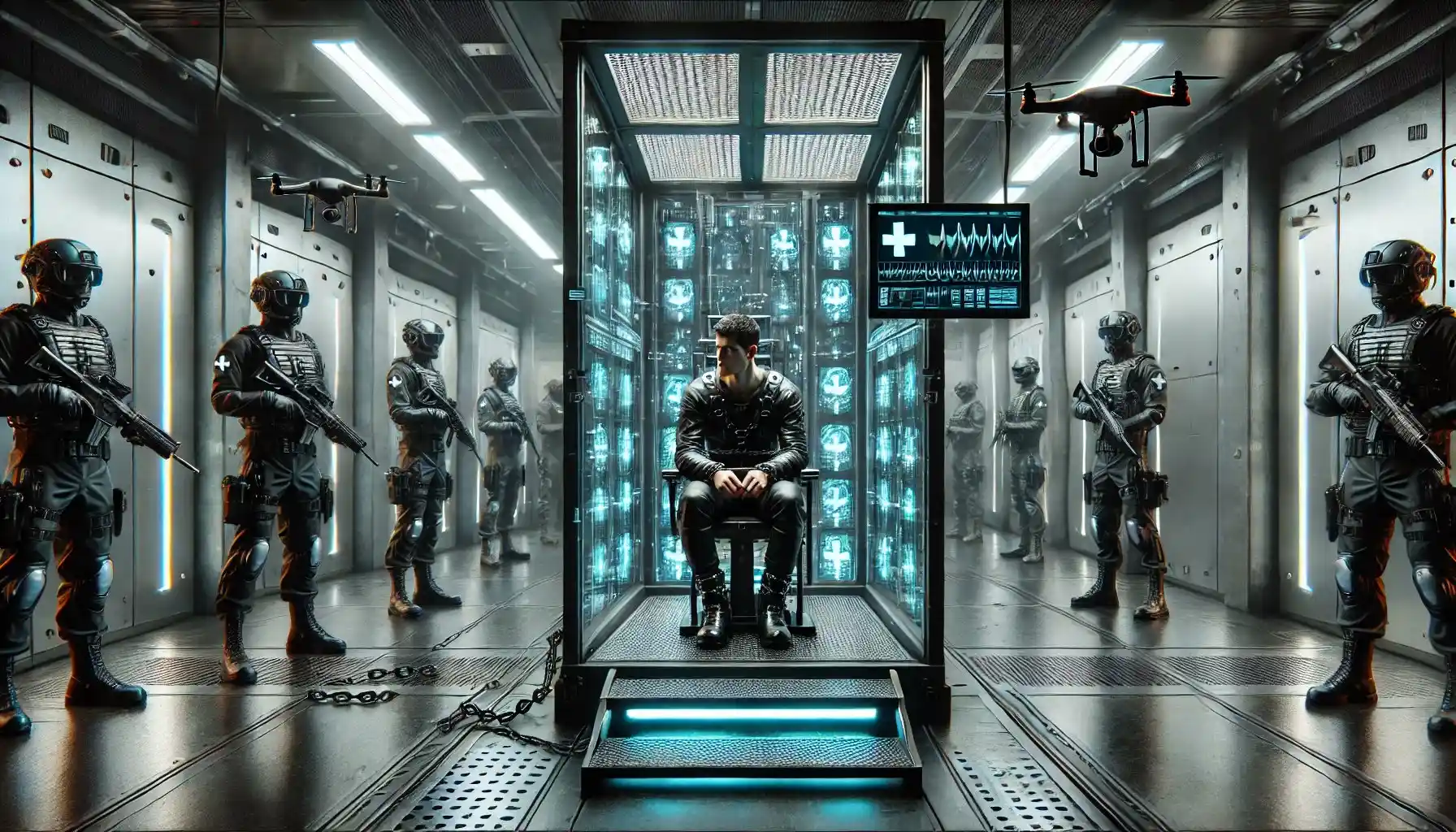
9. Related Content:
Title: “The Hijacking of a Nation: Why Did PM Trudeau Tie Canada’s Identity to PRIDE & Communist Symbols”https://skillsgaptrainer.com/hijacking-of-a-nation/
Title: “Raquel, the goal of communism is to expand the public sector while shrinking the private sector, consolidating control under the state. This trend has accelerated under Trudeau’s leadership.” https://x.com/SkillsGapTrain/status/1869101345371984184
Title: “Shadows at the Border: Canada’s Fight Against the Cartel Infiltration” https://x.com/SkillsGapTrain/status/1856935386334769620
Title: “Cultural Re-Engineering? Investigating the Systematic Reduction of Christian Representation in Canada’s Public Institutions & Funded Establishments” https://x.com/SkillsGapTrain/status/1855461471431643439
Title:@jordanbpeterson @MikhailaFuller Hi! There’s our favourite professor and professor associate! https://x.com/SkillsGapTrain/status/1865716391522791932
Title:@WabKinew @cblackst @EllenGabriel “Hi Wab Kinew. Glad to see to what to our eyes looks like a warrior, in to Manitoba Government.”https://x.com/SkillsGapTrain/status/1865710597767036949
Title:@CCFR_CCDA “Hi Team CCFR and all Sports Communities in Canada, Team SGT saw that bad things are happening in Canada pertaining to firearms rights, property rights and human rights.” https://x.com/SkillsGapTrain/status/1865694531703668738
Title: “The Ghost in the Machine and the Spectre of Dystopia: Comparing Transhumanist Visions in Eastern and Western Science Fiction” https://skillsgaptrainer.com/ghost-in-the-machine-spectre-of-dystopia/
Title: “Title: Navigating the Dystopian Singularity: Shaping TNG-Inspired Future Amidst Colliding Dystopias” https://x.com/SkillsGapTrain/status/1858067423959629829
Title: “You’re absolutely right — Canada is far from ready, and it’s time we acknowledge the truth about our military capabilities.” https://x.com/SkillsGapTrain/status/1840141909857116275
Title: “The Great Filter Ahead: Engineering a Pathway to Complex Civilizational Survival and Overcoming Cosmic Hurdles” https://skillsgaptrainer.com/the-great-filter-ahead-engineering-a-pathway/
Title: “Defenders of Freedom: Canada’s Military, Peacekeeping, & Humanitarian Impact (1900-2024)” https://x.com/SkillsGapTrain/status/1854005141810139557
Title: “Analysis of Canadian Military and National Values (1900 to 2024) and Leadership Under PM Trudeau” https://x.com/SkillsGapTrain/status/1856981702104560119
Title: “Decoding the Security Enigma: An Analytical Examination of Justin Trudeau’s Governance and Canada’s” https://x.com/SkillsGapTrain/status/1846617485350502431
Title: “Defenders of Freedom: Canada’s Military, Peacekeeping, & Humanitarian Impact (1900-2024)” https://x.com/SkillsGapTrain/status/1854005141810139557
Title: “From Professional Autonomy to Centralized Control: Tracing the Shift in Canadian Environmental Governance” https://x.com/SkillsGapTrain/status/1864804848144912443
Title: “Cultural Imperialism vs. Racism: Ethical Boundaries in Societal Self-Determination”https://x.com/SkillsGapTrain/status/1860131548290245059
Title: “The Hidden Hand: Consulting Firms, Cultural Shifts, and the Erosion of Canadian Sovereignty”https://x.com/SkillsGapTrain/status/1811173642409234611
Title: “Safeguarding Canada’s Future: Addressing Economic Stagnation, Defense Vulnerabilities, & National Identity” https://x.com/SkillsGapTrain/status/1853056506750529580
Title: “Forging Canada’s Future: A Unified Curriculum of Tradition and Technological Mastery” https://x.com/SkillsGapTrain/status/1850028223909810680
Title: “Decoding the Security Enigma: An Analytical Examination of Justin Trudeau’s Governance and Canada’s” https://x.com/SkillsGapTrain/status/1846617485350502431
Title:“Taking the Life Out of Canada: Systematic Erosion of Security, Prosperity, and National Identity” https://x.com/SkillsGapTrain/status/1842000157874733303
Title: “Canada’s Future at Risk: The New Global Threats to Our Borders and Security” https://x.com/SkillsGapTrain/status/1824932362905333768
Title: “You’re absolutely right — Canada is far from ready, and it’s time we acknowledge the truth about our military capabilities.” https://x.com/SkillsGapTrain/status/1840141909857116275
Title: @ABDanielleSmith @PierrePoilievr The TAP-IT vision is gaining momentum! 🚄 People are thinking again about high speed rail!” https://x.com/SkillsGapTrain/status/1856666186068504713
Title: “Beyond EVs: Top 10 Revolutionary Vehicle Technologies for a Sustainable and Innovative Future” https://x.com/SkillsGapTrain/status/1842412739064410158
Title: “Enhancing Vehicle Efficiency Through Weight Reduction and Natural Gas Hybrid Systems” https://x.com/SkillsGapTrain/status/1817313442212065628
Title: “Unmasking Global Titans: How China and Russia’s Industrial Economy Exposes Western GDP Illusions” https://x.com/SkillsGapTrain/status/1848150805079081305
Title: “Military, political, and corporate alliances… — such as BRICS, Russia, China, the WEF, and the WHO —” https://x.com/SkillsGapTrain/status/1853952073563291925
Title: “BRICS vs. Soviet Union: How a United Bloc Surpasses the Cold War Superpower” https://x.com/SkillsGapTrain/status/1847423165775171895
Title: “Decoding the Security Enigma: An Analytical Examination of Justin Trudeau’s Governance and Canada’s Vulnerabilities in National Security” https://x.com/SkillsGapTrain/status/1846617485350502431
Title: “Why a Naval Invasion of BC Is Easier from China than India: A Strategic Breakdown” https://x.com/SkillsGapTrain/status/1846508482700440029
Title: “Disagree. Though we are not trained in health related science” https://x.com/SkillsGapTrain/status/1856576595261304850
Title: @vanjimbo “Deploying a few ships to foreign hotspots offers minimal strategic value and lacks substantial offensive capability” https://x.com/SkillsGapTrain/status/1854380531430957229
Title: “China’s defense industrial base is operating on a wartime footing, while the U.S. defense industrial base is largely operating on a peacetime footing.” https://x.com/SkillsGapTrain/status/1855867151363567693
Title: “Canada’s Total Systems Crisis: Navigating a Multi-Sectoral ‘Everything Crisis’” https://x.com/SkillsGapTrain/status/1834967253424418876
Title: “The Strategic Importance of Canada in World War 3” https://x.com/SkillsGapTrain/status/1811674417812111626
Title: “Canada’s Future at Risk: The New Global Threats to Our Borders and Security” https://x.com/SkillsGapTrain/status/1824932362905333768
Title: “Unmasking the Assault: How Ideological Subversion and a Disregard for Heritage Are Undermining Canada’s Military” https://x.com/SkillsGapTrain/status/1819870765086339413
Title: “Protecting Professional Integrity: Ensuring Independence and Diversity in Canada’s Professional Societies” https://x.com/SkillsGapTrain/status/1817143821873893803
Title: “The Price of Censorship: How Censorship & Harms Legislation Risks Silencing PRIDE & LGBTQ+ Voices” https://x.com/SkillsGapTrain/status/1816748528250638536
Title: “Safeguarding Existence: The Farmer’s Role in an Era of Smart Cities and AI Dominance” https://skillsgaptrainer.com/safeguarding-existence-the-farmers-role/
Title: “Navigating Transparency and Secrecy in Professional and Public Discourse” https://x.com/SkillsGapTrain/status/1816402499055554798
Title: “The Eye of Sauron: A Warning to Europe, America, Canada and the World – A Philosophical Exploration from Ancient Egypt to Modern Surveillance and AI” https://x.com/SkillsGapTrain/status/1816088366745805086
Title: “The Illusion of Innovation: How the Liberal Party’s Appropriation of Conservative Ideas Are Ruining Canada’s Future” https://x.com/SkillsGapTrain/status/1816035506519744628
Title: “The Disunity of Camouflage: A Critique of the Olympic Attire” https://x.com/truckdriverpleb/status/1815934262438187183
Title: “The ‘Woke Mind Virus’ in Action: How Trudeau’s “Pro-Family Fantasy” Fuels Various Types of De-Growth (Industrial, Technological, Economic, & Family)” https://x.com/RaquelDancho/status/1815403423459905984
Title: “The Hidden Hand: Consulting Firms, Cultural Shifts, and the Erosion of Canadian Sovereignty” https://x.com/SkillsGapTrain/status/1811173642409234611
Title: “Ideological Subversion and the Demoralization of RCMP Officers” https://x.com/SkillsGapTrain/status/1812965996048658902
Title: “The Impact of Demographic Shifts on National Sovereignty and Stability in Western Nations (except Eastern Europe)” https://x.com/SkillsGapTrain/status/1814220033947512923
Title: “The Great Filter Ahead: Engineering a Pathway to Complex Civilizational Survival and Overcoming Cosmic Hurdles”https://skillsgaptrainer.com/the-great-filter-ahead-engineering-a-pathway/
Title: “Reckless Words: How Extreme Labels From Mindless People Undermine Respect and Trust in Great Leaders” https://x.com/SkillsGapTrain/status/1812427515798933740
Title: Report: “Economic Impact of Blocking Resource and Energy Sectors in Canada” https://x.com/SkillsGapTrain/status/1813138214078619961
Title: “The Role of Sheriffs and the Disintegration of National Police Functions in Canada” https://x.com/SkillsGapTrain/status/1814632355186790460
Title: “The Lost Generations: How Canada’s Immigration Policies & HR Failed Millennials and Gen Z” https://x.com/SkillsGapTrain/status/1812700680345596004
Title: “Undermining Bravery, Strength, Valour, and Freedom: The True Cost of the Assault on Combat Sports” https://x.com/SkillsGapTrain/status/1809347762498031762
Title: “Analysis of Factors Leading to Reduced Family Formation and Decline in Birth Rates in Western Countries” https://x.com/SkillsGapTrain/status/1808664505062470025
Title: “The Pistol: A Silent Guardian Under Siege, A Civilization at the Crossroads”https://x.com/SkillsGapTrain/status/1806509286186537335
Title: “Unleashing Canada’s Potential: Axing the Barriers to Land and Prosperity” https://x.com/SkillsGapTrain/status/1806452246068007323
Title: “Canada’s Hidden Frontier: 99.75%+ Untapped Potential and Unclaimed Wealth” https://x.com/SkillsGapTrain/status/1806429928914825379
Title: “The Principles Guiding Our Future: Human Rights, Truth, Logic, Morality, Science, Unity, Exploration, Technological Advancement, and Diplomacy” https://x.com/SkillsGapTrain/status/1806039484632338675
Title: “CDN Government gave $1.5 Trillion to Canadian charities over 9 years?” https://x.com/SkillsGapTrain/status/1805234848627409049
Title: “From Logic to Extremism: The Alarming Shift in Canadian Political Leaders’ Approaches, Abilities, and Values” https://x.com/SkillsGapTrain/status/1804890010014953746
Title: ‘Misguided Climate Policies or Strategic Economic Sabotage? Analyzing the Impact on Canada’s Economic and Environmental Future’ https://x.com/SkillsGapTrain/status/1799716240287571985
Title: “Safeguarding Canada’s Future: STEM Professionals Speak Out Against the Online Harms Bill and Erosion of Rational Governance” https://x.com/SkillsGapTrain/status/1788261823638110402
Title: “Thank you for initiating the crucial dialogue to end the ‘deadly drug experiment” https://x.com/SkillsGapTrain/status/1825627485809045906
Title: “Provincial decriminalization isn’t ambitious enough. We need global decriminalization! Canadian citizens have been dreaming of this bold vision for decades, envisioning a “A Brave New World” where the legal system is closed down and drug freedom is achieved. It’s time to make this a reality!” https://x.com/SkillsGapTrain/status/1815459750278017467
Title: “Provincial decriminalization isn’t ambitious enough. We need global decriminalization!” https://x.com/SkillsGapTrain/status/1815455611037118912
Title: “Wrote an essay for you Nana! Always good to share ideas!” https://x.com/SkillsGapTrain/status/1810115402971684997
Title: “Is Canada Facing a Religious Arson War?” https://x.com/SkillsGapTrain/status/1800423311408582807
Title: “Timeless Struggles Against Tyranny: The Erosion of Western Values and the Rise of Censorship and Punishment in Canada” https://x.com/SkillsGapTrain/status/1800878955269910802
Title: “The Inversion of Morality: The Erosion of Western Values and the Loss of Christian Ethical Foundations”https://x.com/SkillsGapTrain/status/1800848103706161368
Title: “Look at that post, eh, Elon? Just like in the Sci-Fi classic Equilibrium, where the senior Grammaton Cleric hunts down humanity’s treasures — books — only to burn them.” https://x.com/SkillsGapTrain/status/1860888544174051433
Title: “IPSC and the Warrior Legacy: Fostering Global Resilience in the 21st Century” https://x.com/SkillsGapTrain/status/1854881075526615296
Title:“IPSC’s Last Stand: Shaping the Future of Firearms Policy” https://x.com/SkillsGapTrain/status/1854498067329823018
Title: “Equilibrium (2002) Official Trailer” https://youtu.be/raleKODYeg0?feature=shared
Title: @NorthrnPrspectv, we want to expand on a crucial point that we see developing with Bill C63 & Liberal Party & PM Trudeau efforts: while the bill itself doesn’t explicitly remove emotion, it lays the groundwork for what comes next.“ https://x.com/SkillsGapTrain/status/1840155004071776513
Title:“Disagree. Though we are not trained in health related science – molecular biology, immunology, genomics, synthetic biology, bio-informatics, etc.” https://x.com/SkillsGapTrain/status/1856576595261304850
Title: “Navigating the Dystopian Singularity: Shaping TNG-Inspired Future Amidst Colliding Dystopias” https://x.com/SkillsGapTrain/status/1858067423959629829
Title: “Safeguarding Existence: The Farmer’s Role in an Era of Smart Cities and AI Dominance” https://skillsgaptrainer.com/safeguarding-existence-the-farmers-role/
To see our Donate Page, click https://skillsgaptrainer.com/donate
